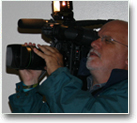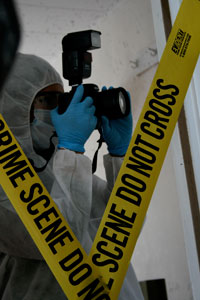 Trent University Converts Farmhouse into Unique Crime Scene House Teaching FacilityFOR IMMEDIATE RELEASE “Hands-On” Laboratory Will Teach Forensic Science Students Professional Investigation Skills Friday, December 5, 2008, Peterborough Located in a converted two-storey farmhouse on Trent lands, this unique facility is designed to teach students professional investigation skills in a realistic learning environment. “The crime scene house is essentially a laboratory training area for students in a number of forensic classes including Introduction to Forensics, Police Powers, and Crime Scene Investigation,” explained Dr. Joanna Freeland, chair of the Forensic Science department at Trent. “It is an incredibly valuable teaching tool that enables students to move out of the classroom, and to put into practice, in a realistic environment, some of the theory that they have learned.” The crime scene house is also an important research initiative, providing new opportunities for students to conduct research on crucial aspects of crime science investigation, such as studying in more detail specific aspects of forensic science that need to be verified in a life-like setting. The O.P.P. is working with Trent’s Forensic Science Program to capitalize on some of these opportunities for research and forensic training, as explained by Staff Sergeant Mike Illes: “The O.P.P. needs avenues for research and development and this is a good way to do that. Working with Trent’s forensic science students has been phenomenal.” During the opening, students and members of the O.P.P were on hand demonstrating forensic techniques such as blood spatter analysis, fingerprint dusting, evidence recovery, photography and footprint casting. Guests also had a chance to meet “Giselle” the ‘decomposed’ forensic mannequin which is used to train students how to process a “body dump” following a homicide. In addition to its value for Trent students, the crime scene house will also be a venue for public workshops on crime scene analysis, as well as used for various research projects, such as forensic entomology. -30- For further information, please contact Dr. Joanna Freeland, chair of the Forensic Science Department, at (705) 748-1011, ext. 7180 or cell: (705) 875-2630. |

































 Together with forensic science students, faculty and O.P.P partners, Trent University officially opened its crime scene house teaching and research facility today.
Together with forensic science students, faculty and O.P.P partners, Trent University officially opened its crime scene house teaching and research facility today.